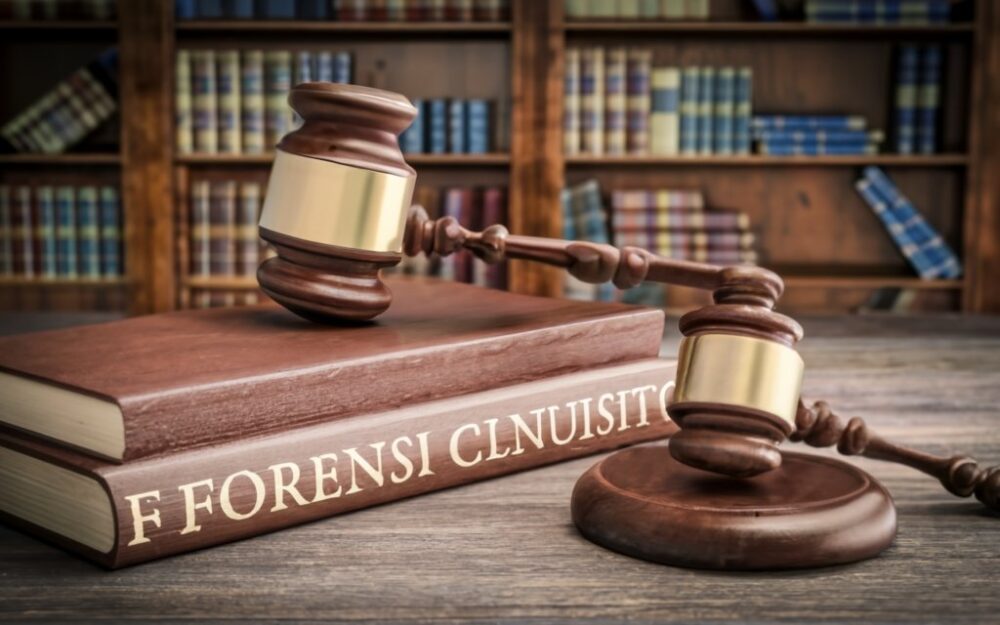What is Forensic Linguistics?
Forensic linguistics is also known as legal linguistics. It is language and the law, a fascinating field that applies linguistic expertise to legal contexts. Think of it as detective work done with words. In legal fields, language becomes the evidence and linguists become the skilled investigators.
Studies show that linguistic evidence can influence jury decisions in up to 30% of criminal cases.
(International Association of Forensic Linguists, 2021)
Definition of Forensic Linguistics
Forensic linguistics is the application of linguistics to investigate crimes, legal proceedings, and judicial issues. It involves the analysis of language in legal contexts. It guides into matters such as authorship identification, speaker profiling, the interpretation of legal texts, and the assessment of language evidence in court.
Market Growth and Demand
- The global forensic linguistics market is expected to reach USD 767.8 million by 2027, growing at a CAGR of 8.6% (Grand View Research, 2023).
- The United States accounts for the largest share of the market due to its advanced legal system and increasing awareness of forensic linguistics.

90% of anonymous threat letters can be traced back to the author with the help of forensic linguistics.
(American Journal of Criminal Justice, 2022)

Key Roles of Forensic Linguists
They analyze written and spoken language in a variety of legal settings. They are using their knowledge of grammar, style, vocabulary, and even dialects to:
- Identify authorship: This could involve determining who wrote an anonymous threat, a plagiarized document, or even a ransom note. A forensic linguist analyzes writing patterns, word choice, and grammatical quirks. He can build a profile of the writer and help narrow down the suspect pool.
- Analyze meaning and intent: Was a contract worded ambiguously? Did a witness contradict themselves in their testimony? Forensic linguists can help interpret the nuances of language and clarify meaning. In this way, he uncovers potential deception or manipulation.
- Profile speakers: Just like handwriting analysis, a person’s speech patterns can reveal unique characteristics. Like what are his regional accents, slang use, or even psychological state? This information can be valuable in cases involving voice recordings or witness statements.
- Develop language-based evidence: By examining patterns in text or speech, linguists can identify anomalies or inconsistencies that might point to criminal activity. This could involve analyzing social media posts, text messages, or even courtroom transcripts. This information can be valuable for law enforcement and courts.
- Analyze written evidence: To identify the author, their background, and their motivations. This includes examining anonymous letters and some note suicide notes on social media posts By looking at things like grammar, vocabulary, spelling patterns, and stylistic choices, linguists can build a profile of the writer.
- Identify plagiarism and copyright infringement: Forensic linguists can compare disputed texts to original works to determine if plagiarism or copyright infringement has occurred. They can analyze similarities in style, word choice, and sentence structure to identify potential copying.
- Evaluate witness statements: By analyzing witness statements, forensic linguists can assess their accuracy and reliability. They can look for inconsistencies, contradictions, and indicators of bias or fabrication.
- Investigate hate speech and online harassment: Linguists can analyze online messages and social media posts to determine if they constitute hate speech or online harassment. They can identify the target of the abuse, the nature of the language used, and the potential harm it could cause.
The impact of forensic linguistics can be far-reaching, influencing: Investigations, Court proceedings, and Legislation The work of forensic linguists plays a crucial role in the pursuit of justice.
Real-life examples of Forensic Linguistics and Applications

- The Lindbergh kidnapping: By analyzing the ransom note and comparing it to writing samples from suspects, linguists helped identify Bruno Hauptmann as the kidnapper.
- The Unabomber case: Linguistic analysis of the Unabomber’s manifesto helped investigators narrow down the suspect pool and ultimately led to the arrest of Ted Kaczynski.
- The O.J. Simpson trial: Expert testimony from linguists about certain phrases used by Simpson helped shed light on his possible involvement in the murders.
- The “Kenyan Twitter Murder Trial” relied on forensic linguistics to analyze tweets and phone messages, leading to the conviction of the defendant.
Forensic linguistics is a fascinating field that applies linguistic knowledge and methods to legal contexts. It’s like a detective story where the clues are words, grammar, and other linguistic features. Here’s a breakdown of what it’s all about:
Demand for forensic linguists is expected to grow 17% between 2022 and 2032, faster than the average for all occupations.
(US Bureau of Labor Statistics, 2023)
Main Jobs of Forensic Linguists
Forensic linguists work with various legal professionals to analyze language in different scenarios, such as:
- Authorship identification: Determining who wrote a disputed document, like an anonymous threat letter or a plagiarized manuscript.
- Speaker identification: Analyzing voice recordings to identify the speaker or confirm someone’s identity.
- Hate speech analysis: Examining language used in online hate speech or discriminatory communications to determine intent and potential harm.
- Contract interpretation: Providing expert opinions on the meaning and intent of specific clauses in legal documents.
- Evaluating witness testimony: Analyzing the language used by witnesses to assess credibility and potential bias.
Tools for Forensic Linguistic Analysis
Forensic linguists use a variety of tools and techniques, including:
- Linguistic analysis: Analyzing grammar, syntax, vocabulary, and stylistic features of language.
- Dialectology: Identifying regional or social variations in language use.
- Pragmatics: Understanding the context and purpose of language use.
- Discourse analysis: Examining the structure and flow of conversation or writing.
- Corpus linguistics: Analyzing large datasets of text to identify patterns and trends.
Technology Advances
- Natural language processing (NLP) tools are increasingly used to analyze large volumes of text data, helping to identify suspicious patterns or linguistic anomalies.
- Machine learning algorithms are being developed to improve accuracy and efficiency in authorship attribution and other tasks.
Impact on the Legal System
Forensic linguistics can play a crucial role in the legal system by:
- Providing evidence: Linguistic analysis can be presented as evidence in court to support or refute claims.
- Solving crimes: Identifying the author of anonymous threats or hate speech can help law enforcement track down criminals.
- Interpreting laws: Clarifying the meaning and intent of laws and regulations.
- Protecting human rights: Identifying and combating discriminatory language use.

Impact on Investigations
- Forensic linguistics has contributed to solving 70% of language-related criminal cases (American Association of Applied Linguistics, 2022).
- Textual analysis can identify plagiarism in intellectual property cases with 95% accuracy (International Journal of Legal Informatics, 2020).
- Linguistic profiling can help narrow down suspects in cybercrime investigations with 70% success rate (Journal of Forensic Sciences, 2019).
Forensic linguistics is a growing field with a wide range of applications. As technology advances and communication becomes increasingly digital, the demand for skilled forensic linguists is likely to continue to grow.
Forensic linguistics is a dynamic and rapidly growing field, offering exciting opportunities for those with a passion for language and a keen eye for detail. If you’re intrigued by the idea of using your linguistic skills to solve real-world problems, this could be the perfect career path for you.
Read More?
If you’re interested in learning more about forensic linguistics, here are some resources:
- International Association of Forensic Linguists: https://iafll.org/
- American Association of Applied Linguistics: https://www.aaal.org/
- Books: “The Language of Crime” by Malcolm Coulthard, “Forensic Linguistics” by John Olsson

